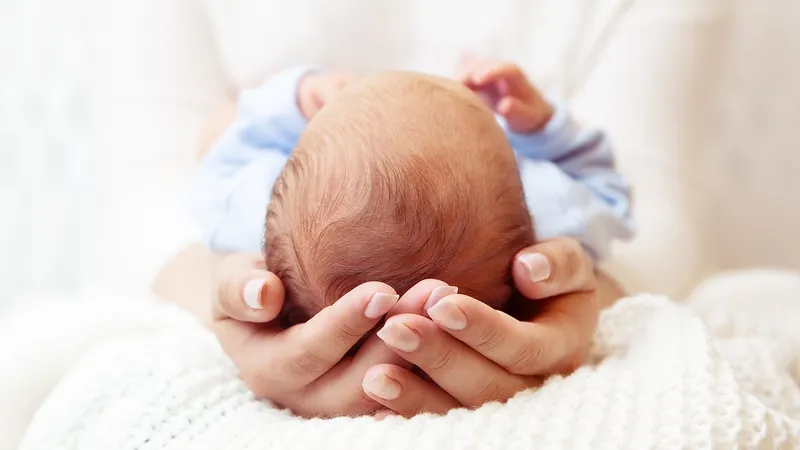
Pregnancy Iron Levels Linked to Intersex Births: What You Need to Know!
2025-06-06
Author: Ming
Are You Getting Enough Iron During Pregnancy?
A groundbreaking study reveals that not consuming enough iron during pregnancy could significantly increase the chances of babies being born intersex. This research signals a pivotal moment in understanding maternal nutrition and its impact on fetal development.
The Shocking Discovery with Pregnant Mice
For the first time, scientists observed that pregnant mice with iron deficiencies were more likely to give birth to male offspring exhibiting female genitalia. This startling finding underlines the critical role of iron in the development of sexual organs.
The Iron Dilemma: What to Eat?
Iron is essential for various functions, primarily sourced from iron-rich foods such as red meat, kidney beans, chickpeas, nuts, and leafy greens. Testing for iron deficiency is simple—a blood test can reveal a woman's iron levels, and supplements can be prescribed when needed, often alongside vitamin C to enhance absorption.
Is Iron Deficiency a Hidden Threat?
Previous studies have linked low iron levels during pregnancy to an increased risk of congenital heart defects. Now, the connection to intersex birth raises further concern, emphasizing the importance of monitoring a pregnant woman’s diet closely.
Understanding Intersex: More Than Meets the Eye
Intersex individuals possess genitalia or reproductive organs that don't fit typical male or female definitions. Their chromosomes may also vary, leading to a unique gender identity that deviates from traditional norms. The phenomenon affects approximately 1-2% of the global population.
What’s Happening on a Cellular Level?
Scientists have uncovered that the Sry gene, essential for male organ development, may not activate when iron levels are low. This revelation is crucial, as it suggests that iron isn't just about blood health but also about proper fetal sexual organ formation.
The Bigger Picture: Iron, Toxins, and Health
Emerging evidence points to environmental toxins and maternal diets influencing gene activity, particularly in the early stages of reproductive development. These findings could reshape medical guidelines regarding iron intake during pregnancy.
The Heart Connection
Moreover, research indicates that anemia during pregnancy may account for a significant percentage of congenital heart disease cases, highlighting the potential dangers of iron deficiency.
Final Thoughts: The Importance of Iron
As experts continue to unveil the complexities of pregnancy and nutrition, the implications of these findings are profound. Pregnant women should prioritize proper iron intake, not only to foster healthy fetal development but also to prevent serious health issues down the line. Don’t underestimate the power of what’s on your plate!




 Brasil (PT)
Brasil (PT)
 Canada (EN)
Canada (EN)
 Chile (ES)
Chile (ES)
 Česko (CS)
Česko (CS)
 대한민국 (KO)
대한민국 (KO)
 España (ES)
España (ES)
 France (FR)
France (FR)
 Hong Kong (EN)
Hong Kong (EN)
 Italia (IT)
Italia (IT)
 日本 (JA)
日本 (JA)
 Magyarország (HU)
Magyarország (HU)
 Norge (NO)
Norge (NO)
 Polska (PL)
Polska (PL)
 Schweiz (DE)
Schweiz (DE)
 Singapore (EN)
Singapore (EN)
 Sverige (SV)
Sverige (SV)
 Suomi (FI)
Suomi (FI)
 Türkiye (TR)
Türkiye (TR)
 الإمارات العربية المتحدة (AR)
الإمارات العربية المتحدة (AR)